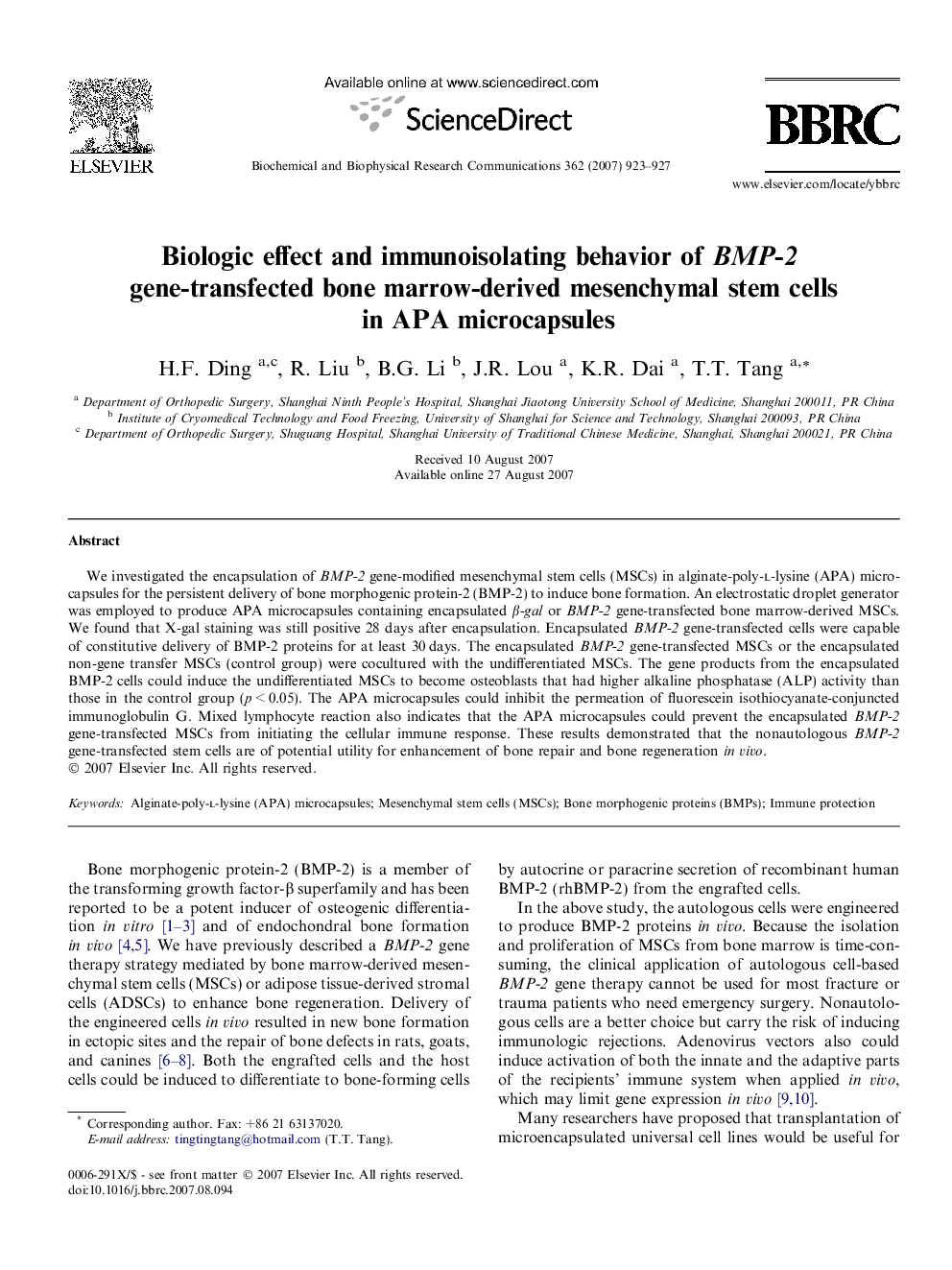| Article ID | Journal | Published Year | Pages | File Type |
|---|---|---|---|---|
| 1936346 | Biochemical and Biophysical Research Communications | 2007 | 5 Pages |
Abstract
We investigated the encapsulation of BMP-2 gene-modified mesenchymal stem cells (MSCs) in alginate-poly-l-lysine (APA) microcapsules for the persistent delivery of bone morphogenic protein-2 (BMP-2) to induce bone formation. An electrostatic droplet generator was employed to produce APA microcapsules containing encapsulated β-gal or BMP-2 gene-transfected bone marrow-derived MSCs. We found that X-gal staining was still positive 28 days after encapsulation. Encapsulated BMP-2 gene-transfected cells were capable of constitutive delivery of BMP-2 proteins for at least 30 days. The encapsulated BMP-2 gene-transfected MSCs or the encapsulated non-gene transfer MSCs (control group) were cocultured with the undifferentiated MSCs. The gene products from the encapsulated BMP-2 cells could induce the undifferentiated MSCs to become osteoblasts that had higher alkaline phosphatase (ALP) activity than those in the control group (p < 0.05). The APA microcapsules could inhibit the permeation of fluorescein isothiocyanate-conjuncted immunoglobulin G. Mixed lymphocyte reaction also indicates that the APA microcapsules could prevent the encapsulated BMP-2 gene-transfected MSCs from initiating the cellular immune response. These results demonstrated that the nonautologous BMP-2 gene-transfected stem cells are of potential utility for enhancement of bone repair and bone regeneration in vivo.
Related Topics
Life Sciences
Biochemistry, Genetics and Molecular Biology
Biochemistry
Authors
H.F. Ding, R. Liu, B.G. Li, J.R. Lou, K.R. Dai, T.T. Tang,
